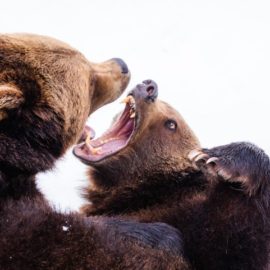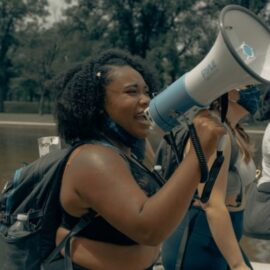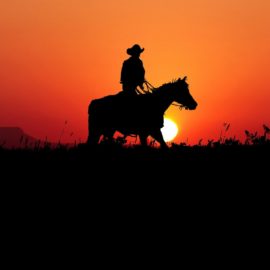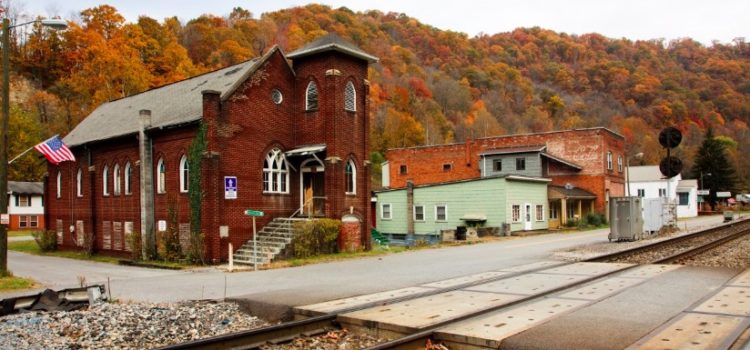
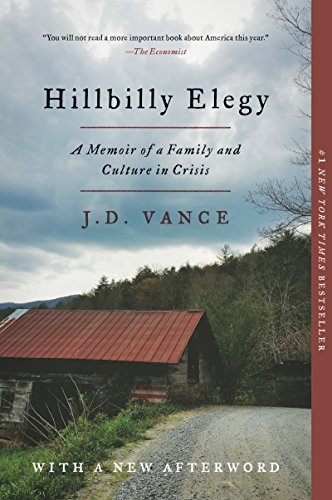
This article is an excerpt from the Shortform summary of "Hillbilly Elegy" by JD Vance. Shortform has the world's best summaries of books you should be reading.
Like this article? Sign up for a free trial here .
What are the hallmarks of Appalachian culture? Are these hallmarks actually stereotypes?
JD Vance says they’re not. Hillbilly Elegy sets out to explore the struggles of Appalachian life in 21st-century America through the personal story of its author, JD Vance.
Part autobiography, part sociological text, and part political manifesto, the book tells a story of dysfunctional families; substance abuse; the material, spiritual, and moral decline of Appalachian culture; and the struggles to achieve true economic and social mobility in the United States.
JD Vance and Appalachian Culture
JD was born in 1987 in Middletown, Ohio, to a family of transplanted Kentucky hillbillies. His mother, Bev, would struggle with substance abuse issues for most of his childhood and adolescence, inflicting severe emotional trauma on him and his older sister, Lindsay. As JD saw it, this was a normal aspect of Appalachian culture. On one occasion, she pulled over the car while she was driving him and threatened to severely beat him—until he escaped to a nearby house and had her arrested. On another occasion, her drug addiction spiraled so far out of control that she forced her teenage son to provide a clean urine sample so she could pass a drug test.
She also cycled through five marriages during this period of JD’s Appalachian life, sometimes with men she’d only known for a few weeks. The instability was a major source of pain for him as he was growing up—he never had a true father figure and had a conflicted-at-best relationship with his biological dad. Bev would often force him to move in with her new men, taking him to new towns away from his friends and family, only for these people to be suddenly and unceremoniously removed from his life when their relationship with Bev ended.
Achieving Upward Mobility in Appalachian Culture
JD enlisted in the Marine Corps after graduating from high school. Enduring the emotional and physical toll of basic training taught him the virtues of self-reliance and showed him that he was capable of achieving far more than he had given himself credit for. He discovered that he had spent his whole life underestimating himself—thanks to his tumultuous upbringing in which he felt unloved and unwanted, and the Appalachian culture, which encouraged a deep pessimism and fatalism about one’s prospects in life.
Key Themes of Appalachian Culture
Beyond just being the story of JD Vance’s Appalachian life, Hillbilly Elegy is a broader social commentary and a critique of Appalachian culture. Vance argues that Appalachian culture, as lived and practiced in post-industrial towns across Appalachia like where he grew up, has come to celebrate self-destructive and antisocial behavior. He contends that this behavior and a certain set of attitudes are severe hindrances that prevent white working class people from acknowledging the problems in their families and their communities and make it difficult for people to succeed outside of that Appalachian culture.
Aversion to Work
Growing up, JD saw that many people in his community and Appalachian culture viewed work with disdain and struggled to hold down a steady job. His community was plagued by high levels of unemployment, indebtedness, welfare dependency, and poor work habits. JD recalls one young man with whom he worked at a summer job. The man would consistently take hour-long bathroom breaks, call out sick at least once a week, and was chronically late. Eventually, he was fired. Yet when this happened, the man blamed his employer for the situation, claiming he’d been treated unfairly—there was no sense of personal responsibility, no willingness to account for how his own actions had led him to this point.
Blame-Shifting
JD makes the case that Appalachian culture has become resentful and insular, all too willing to blame the rest of the world for its problems instead of taking an introspective look at itself. Rather than taking responsibility, JD saw that many of his drug-addicted and impoverished friends and neighbors chose to blame the government (and often President Barack Obama specifically). One friend quit his job because he refused to wake up late, then took to social media to bemoan the sluggishness of the “Obama economy” for his unemployment.
In examining his own political affiliations later in life, JD saw that movement conservatism—while ideologically and rhetorically rooted in the ethic of personal responsibility—too often just provided its adherents with targets to blame, instead of solutions for self-improvement. Popular religion reinforced the same themes. JD saw how fundamentalist Protestantism, for example, gave people no concrete answers for life’s most pressing issues. It instead gave them a convenient list of bogeymen to fear and oppose—usually LGBT people, liberal college professors, the federal government, abortionists, and feminists. As long as you had disdain for the “right” people, you were a good person.
Culture of Honor
Too many in JD’s community, particularly males, lived by an outmoded “code of honor” that demanded violent retribution be meted out to anyone who offered the slightest insult or sign of disrespect. This was a strong element of Appalachian culture. Growing up, he heard stories about how close relatives had beaten and shot people in the course of disputes. This was celebrated as a noble cultural characteristic, and JD became an ardent practitioner. When a boy broke up with his sister, he saw it as his duty to violently attack the young man. When someone insulted his grandmother on the schoolyard, his sense of family loyalty and honor compelled him to start a fight. Looking back, JD now sees this behavior as self-destructive: the rest of the world does not resolve mild disputes or disagreements through violence. Growing up in this world stops young people from knowing how to resolve conflicts in a healthy way and renders them unable to function outside of it.
Poor Education
Today, as an Ivy League-educated white collar professional, JD is able to look back soberly at just how much of an exception he is: how little emphasis his community and his Appalachian culture placed on education. A college education was a distant and remote pipe-dream, certainly not something parents prepared their children for or treated as an expected life experience. No one JD knew had gone to a four-year college; and 20 percent of the town’s high school freshman cohort wouldn’t go on to graduate in four years. With hindsight, JD attributes this poor record of educational attainment to a culture of low expectations. Children saw poverty, high unemployment, and drug addiction all around them growing up, often in their own immediate families. With such poor models of adult behavior, they never came to expect much from themselves.
Pessimism
Throughout his childhood and teenage years, JD saw how his community and Appalachian culture in general was infected by a gloomy pessimism and fatalism that encouraged people to abandon any hope that their material condition could ever improve. This attitude only encouraged indifference and apathy, as well as poor work ethic: if things will never get better, there’s no point in working hard to try to improve your lot in life. Indeed, surveys show that working-class whites are the most pessimistic demographic group in America today. This speaks to a deep spiritual and cultural decline in the community.
Economic Mobility, Social Stagnation
When he went to Ohio State and then to Yale Law School, JD learned to be a keen observer of how successful people thought and behaved versus how people in his community looked at the world. Having now lived in both worlds, he saw that true mobility in America was defined by more than wealth: social mobility mattered more than economic mobility. Even during periods where his family was earning good money and living in relative material comfort, they maintained all the same destructive social attitudes and dysfunctional modes of conflict resolution that were the inheritance of their Appalachian culture. From high divorce rates to domestic discord, they never made the transition to true middle-class standards of respectability.
Social Capital
Later on, in the white-collar professional world, JD discovered how much he truly had lacked in social capital—the networks of relationships that enable individuals to function and succeed. This lack of social capital put him and his community at a severe disadvantage and still represents a major barrier to social mobility in America.
Lessons from JD Vance’s Story About Appalachian Culture
So what are to take away from JD’s story? Clearly, his example shows that bright, motivated people can still achieve upward mobility in America, even if they come from circumstances of material and cultural poverty.
Growing up, JD witnessed painful traumas:
- The drug addictions of his mother.
- An unstable home life defined by the absence of a permanent father figure and his mother’s parade of romantic partners. This uprooted his sense of belonging and left him in a position of never knowing where he was going to live or who he would be with.
- Episodes of shocking verbal and physical abuse, the most traumatic being when his mother literally threatened to murder him while they were driving.
But he also had the love and support of his maternal grandparents, who shielded him from as much of the chaos as they could, and exemplified the best of Appalachian culture. They were fiercely loyal and committed to family and refused to let JD sink into apathy or defeatism. They always told him that hard work mattered more than the circumstances of his birth.
In the end, the good outweighed the bad—through Mamaw and Papaw’s guidance, JD made something of himself.
- He learned self-reliance and discipline during his stint in the U.S. Marine Corps.
- He took those skills to Ohio State University, where he excelled academically.
- He then matriculated at Yale Law, where he learned how to make use of social capital and forge the critical connections that would fuel his personal and professional success.
With the benefit of hindsight, JD now sees that he came from an Appalachian culture where hard work, personal responsibility, and thrift were devalued—no matter how much lip service might have been paid to these ideals. He argues that his hillbilly past has been replicated millions of times over by other children of the white working class.
Hillbillies must wake up, reform the parts of their Appalachian culture that lead to self-destructive behavior and make them unable to succeed in broader society, and start taking responsibility for the state of their communities and their families.
In JD’s interpretation, public policy may help around the margins, but fundamentally, this is not a crisis the government can solve. There is no tax incentive that can be created to fight spiritual poverty; bureaucrats can’t devise a program to force family members to treat one another with respect. The problems arose from the deep roots of Appalachian culture; they will only be solved by people within that culture.
———End of Preview———

Like what you just read? Read the rest of the world's best summary of "Hillbilly Elegy" at Shortform . Learn the book's critical concepts in 20 minutes or less .
Here's what you'll find in our full Hillbilly Elegy summary :
- The hallmarks of hillbilly culture and why they hold people back
- How JD Vance broke out of his hillbilly childhood and graduated from Yale
- Why the author thinks hillbillies might be beyond saving


